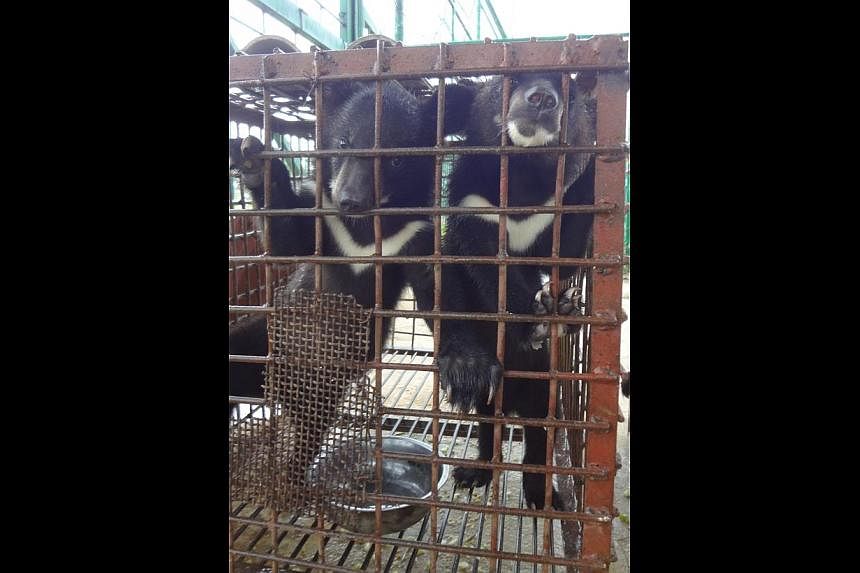A British-based activist organisation has called for trade sanctions against Laos on grounds of large-scale violations of the Convention on International Trade in Endangered Species (Cites) in a Chinese enclave near the Thai border.
The Environmental Investigation Agency (EIA) in a report released today, based on a joint investigation with the Vietnam-based Education for Nature Vietnam (ENV), found the sprawling, 3,000ha Golden Triangle Special Economic Zone (GT SEZ) in Bokeo Province on the Mekong river, has "effectively become a lawless playground".
''The blatant illegal wildlife trade by Chinese companies in this part of Laos should be a national embarrassment and yet it appears to enjoy high-level political support from the Laos government, blocking any potential law enforcement," EIA said in its report released on Thursday morning.
The 24-page report titled "Sin City: Illegal wildlife trade in Laos' Golden Triangle Special Economic Zone" details how captive tigers held in a facility in the zone by the Hong Kong-registered Kings Romans Group (KRG), also known by its Laotian name Dok Ngiew Kham, have increased in number.
The Kings Romans Group signed a 99-year lease in 2007, for the land, which also features a massive casino. The total size of the concession is 10,000ha.
A "Chinatown" section near the casino features products including openly available tiger bone "wine" and meats of endangered species. A restaurant in the complex was offering bear paws, monitor lizards, pangolins, Tokay gecko, snakes and turtles. The restaurant also had jars that claimed to be tiger bone wine.
"Investigators observed a live python and a bear cub kept in cages by the restaurant entrance and the kitchen exit, respectively - both of which were available to eat on request," the report said.
Investigators from EIA and ENV had found four tigers at the GT SEZ in mid-2014, but by February 2015 the number had risen to 35, the report said.
"A senior keeper revealed the goal is to acquire a total of 50 females for breeding to increase the population to 500 tigers within three years and to 1,000 in the long term to produce tiger bone wine for consumption at the GT SEZ and for export to China, via Yunnan," it said.
The EIA's chief tiger campaigner Debbie Banks urged the Chinese government to "recognise the immense damage this place does to its international reputation and to take meaningful action to rein in a Chinese company which is, in effect, running amok with impunity in a neighbouring country with weak governance".
It called on China to investigate connections between Chinese businesses and traders operating at the GT SEZ and wildlife criminals operating between Laos, Myanmar and China, and to cooperate with international counterparts to disrupt criminal networks.
The report also urged the Lao government to investigate the GT SEZ and seize all illegal wildlife products.
''In addition, Parties to the Convention on International Trade in Endangered Species (Cites) should seek Cites trade suspensions until such time as the governments of Laos and China demonstrate that adequate law enforcement, criminal justice and policy measures are being applied towards ending illegal wildlife trade associated with operations at the GT SEZ," it said.




